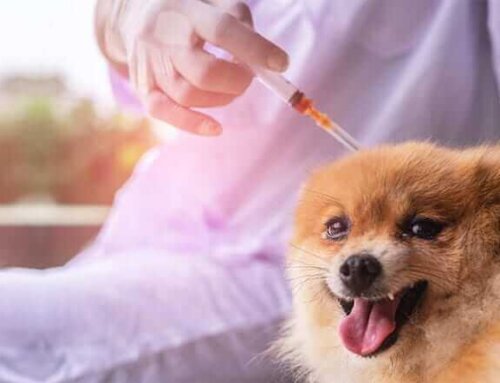The other day one of my clients with a diabetic cat called to discuss his cat’s recent weight loss. His kitty is a senior and he also sees another veterinarian whose clinic is closer to his home than my clinic. Since I haven’t seen him in 4 or 5 months, and since he hasn’t had full labs in probably a year, I told him to come in for blood work. He was reluctant. I’ve trained most of my diabetic pet owners to keep me posted via email or text regarding their glucose curves, and to alert me if anything is out of the ordinary. If anything, I see my diabetic patients more often than my other patients and chat with their humans often. Being in a small town, it’s not uncommon for me to run into clients at the grocery store or post office or simply walking through my neighborhood. Still, there’s nothing like a biochemical blood profile to tell me how my patients are really doing.
This got me thinking – what is the recommended frequency for full lab work? It is such a blessing that we have awesome pet glucose meters that are calibrated for pets, and require such a teeny-tiny droplet of blood that home glucose testing is now becoming the norm. Still, I think a diabetic pet should have a full CBC, chemistry profile and urinalysis at least annually. Given my preference (particularly for urine), I’d like it run twice yearly! If a diabetic pet seems very well controlled, I’m content with a full blood profile annually, but I still want urine tests at 6 month intervals.
I suspect this prior statement will get me an earful of questions, so I will explain further. Even if you think your sweetie is well-regulated, there are things we can find on a routine blood work (run preemptively) that may keep your critter out of the ER with a complication from diabetes. Nobody wants to spend money on lab tests or special diets. In fact, when I do things for my own pets, I threaten them that they had better get a paper route to start paying their own way! Still, money spent on preemptive lab work may minimize a pet having a crisis that lands you in the ER, spending a lot more money.
What can routine lab tests show us?
Urinary tract infections. These are unfortunately relatively common in diabetic pets. Sugar in the pee not only offers bacteria a food source, a high blood glucose makes it difficult for a diabetic to concentrate the urine. The sugar overwhelms the kidneys’ ability to pull water back and the result is dilute urine. Normally urine is a caustic, unpleasant place for bacteria to live. Now, if suddenly the urine is dilute and sugary, you might reconsider. Urinary tract infections can wreak havoc on diabetic regulation, cause discomfort, and can result in ascending kidney infections. Since dilute urine may make it harder to find bacteria and white blood cells, it is ideal to run urine cultures twice yearly, even if you think your diabetic is well-controlled.
Liver values on a chemistry profile can clue us in on subtle dis-regulation. When we first diagnose a pet with diabetes, we commonly find an increase in liver enzymes. This is because the body has been trying to compensate for the lack of insulin, or inability to utilize insulin from body stores of fat. This can be irritating to the liver. As we get the diabetes under control, these liver values usually go back to normal.
Pancreatic values are routinely run on blood chemistry profiles. Since the pancreas is the organ that makes insulin, we want to keep a close eye on the on pancreatic values. Heck, many diabetic pets become diabetic after having pancreatitis, and some pets have recurrent bouts of pancreatitis. Flare ups of pancreatitis can wreak havoc on diabetic regulation.
Most blood profiles will include a CBC (complete blood count). A high white blood cell count may indicate an infection. Infections result in insulin resistance. Some pets with chronic disease may develop anemia. Diabetes is a chronic disease. Additionally, an abnormal CBC might cause us to delve further if we find an abnormality.
Blood profiles can alert us to other issues as our diabetic pets age. Just because we have identified diabetes, it doesn’t mean our sweeties are immune to getting other diseases, particularly kidney disease. I’m a vet who would much rather recognize and deal with a disease process early on, rather than when it’s too late to do much, short of heroics.
As always, I enjoy hearing from our readers and clients. You can email me at [email protected]. I get a lot of our article topics from questions by readers.
NOTE: Consult your veterinarian to confirm that my recommendations are applicable for the health needs of your pet.













what if your cats gluc. levels never seem to be level consistently? My vet has suggested it is issues w/her pancreas. A yr. ago she did have a cyst on it (known via an ultras.); then a month later the cyst was gone. She’s on Vetsulin and is doing better w/that than with Lysine. Misty is also shaky/ trembling probably 90% of the time for some unknown reason (has been happening for abt. 3 yrs. now – her whole body will tremor, but mostly you see it in her head & her front legs. She was super shaky yesterday, & had gone down to 54; the day before she’d gone down to 77. Other days when it’s her testing day, her lowest level may be as low as 190, or as high as in the 300’s. These up & down numbers are on 2 to 2 1/4 units 2 times/day. For awhile now she’s been eating abt. 1/4 cup of food a day, staying at 8.8 lbs. (She’d dropped down to 5 lbs. a yr. ago).
This is timely! I’m taking my diabetic cat in for his shots soon, and was wondering if we should run his blood work again. We just did it in March. I’ll use this to help me decide.